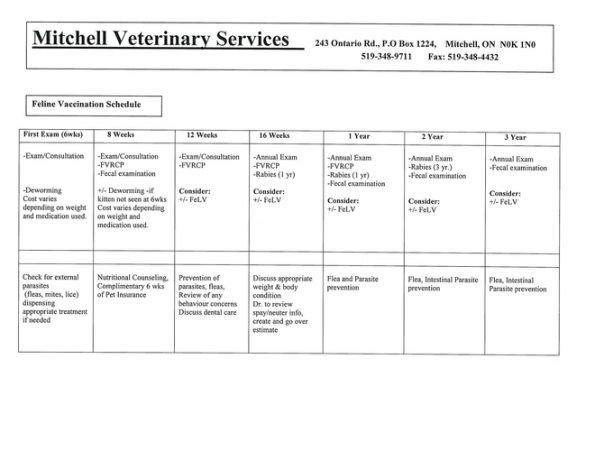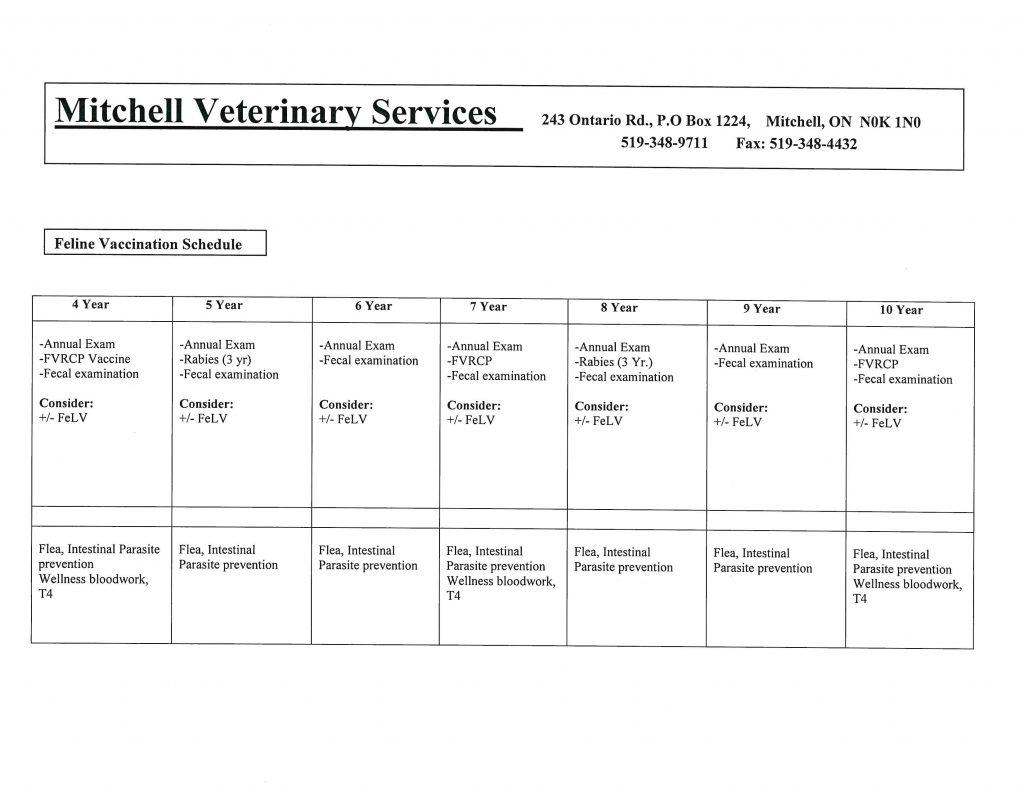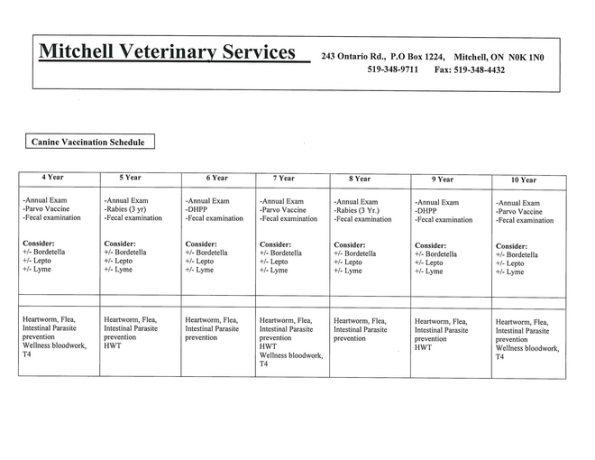We strongly recommend annual visits to the vet clinic for both cats and dogs. Why might that be? It’s not all about vaccines.
HISTORY TAKING
Firstly, a technician and doctor will gather history on your pet. What is it’s lifestyle? Tell us about the typical day of your pet. Knowing who your pet interacts with, where he travel, his activity level and what he eats helps us to paint a picture of what risks he may be exposed to.
- For example, do you take your dog to public areas where it may have close contact with other dogs? He may benefit from the kennel cough vaccine.
- Does your dog go camping with your family at the Pinery where there is a high risk of Lyme disease from ticks? Tick prevention in the form of topical or oral products, as well as vaccination against Lyme should be discussed.
- Does your kitty hunt and eat houseflies inside your home? Despite being an indoor cat, cats can contact intestinal parasites, such as roundworm and tapeworm from eating insects.
We want to know if you have any specific behaviour concerns for your pet.
- For example, are you worried that your pet will be stressed when the new baby joins the family?
- Is your new kitten scratching the furniture?
- Is your dog anxious when left home alone?
- Is your senior cat howling during the night?
PHYSICAL EXAMINATION
A lot of changes occur in a cat or dog during a calendar year. Their lifespans differ from that of a human and correspondingly, growth and aging occurs at a faster rate. Your pet may outwardly seem itself, but on physical exam, early signs of disease may be present. The goal of a physical examination is to assess an animal’s health by examining its body systems. This is done by sight, smell, listening to the heart and lungs and touch (feeling internal organs through palpation and manipulating joints). A veterinarian will look for symmetry and examine the eyes, ears, nose, teeth and gums, throat, lymph nodes, skin, nails, genitals and abdomen. A pet’s mental state, nerve function and gait can also be assessed during examination – this is known as a neurological exam. In addition, your pet’s body condition score, weight fluctuations and degree of muscling are assessed.
image of report card
We take your pet’s life stage into account – is she growing, adult, senior or geriatric? Her needs will differ greatly based on her life stage and breed.
VACCINATION
Vaccines may not be protective unless they are correctly administered at the appropriate intervals. There are vaccine guidelines that form the basis for your veterinarian’s recommendations for which vaccines should be given to your pet. These recommendations change based on your pet’s age, risk of exposure, health and history of vaccine reactions.
image of vaccine schedule
DIAGNOSTIC TESTING
We recommend yearly intestinal parasite screening. This involves bringing a fresh sample of your pet’s poop for our technicians to analyze in our in-house lab for the presence of intestinal worms or eggs.
Annual wellness bloodwork is also recommended – this is a screening tool to look for signs of early organ disease BEFORE there are signs present on a physical examination or to confirm suspicions of a disease. Testing the thyroid level is recommended for pets 8 years of age and older. Analyzing a fresh morning urine sample is recommended for senior patients as well.
We recommend annual heartworm and Lyme testing to ensure that your dog is negative for heartworm prior to starting seasonal heartworm prevention.
PREVENTATIVE CARE AND TREATMENTS
Seasonal parasite prevention for intestinal parasites (roundworm, hookworm, tapeworm), heartworm and external parasites, such as fleas and ticks, is recommended based on your pet’s level of exposure.
We discuss and perform grooming needs. It is very important to maintain a healthy coat and nails.
After pin-pointing health concerns through a physical examination and diagnostic tests, issues can be addressed in a timely manner. For example, patients with early dental disease benefit from a dental cleaning. Routine skin, ear and bladder infections can be treated with antibiotics. Obesity and arthritis are also health concerns that can be managed in partnership with your regular veterinarian.
An annual pet visit maintains a VETERINARIAN-CLIENT-PATIENT-RELATIONSHIP (VPCR). A VPCR allows a veterinarian to prescribe prescriptions for your pet.
https://cvo.org/For-the-Public/What-to-Expect-from-Your-Veterinarian.aspx
Your pet’s annual vet visit is an opportunity to find and address issues early on. We want to discern individual concerns pertaining to your pet’s well being, so that we can take measures to keep it pain-free and hopefully extend its longevity.
If you’re not sure of your pet’s last annual examination, call and talk to one of our team members at Mitchell Veterinary Services/Pauly Veterinary Clinic.






